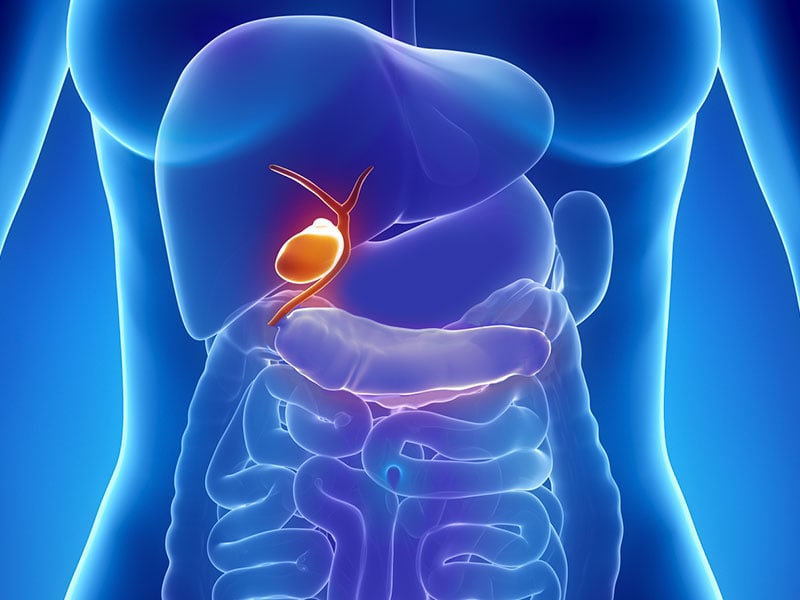
Symptoms, Diagnosis, and Treatment for Gallbladder Cancer
We all know the importance of taking good care of our bodies and paying attention to warning signs that could indicate a health problem. Gallbladder cancer is one such condition that deserves due attention, as it is both rare and difficult to diagnose in its early stages. In this blog, we will discuss the symptoms, diagnosis, and treatment options for gallbladder cancer. We hope this article will help you gain a better understanding of how to spot the signs of this serious medical condition so that you may seek proper medical attention if needed.
Gallbladder Cancer (What is it?)
Gallbladder cancer is a rare and deadly form of cancer that affects the gallbladder, an organ located in the abdomen near the stomach. It can be caused by a variety of factors, including genetics, age, gender, lifestyle choices such as smoking or drinking alcohol, and environmental factors. This type of cancer is often diagnosed late because symptoms do not usually appear until the disease has progressed significantly. Proper diagnosis and treatment are essential for increasing survival rates and improving quality of life.
Symptoms of Gallbladder Cancer
Gallbladder cancer is often asymptomatic in its early stages, making it difficult to detect. However, as cancer progresses, certain symptoms may start to develop. Some of the common symptoms of gallbladder cancer include:
Diagnosis of Gallbladder Cancer
If an individual experiences symptoms that may indicate gallbladder cancer, a doctor will typically perform a series of tests to determine if the cancer is present. Some of the most common diagnostic tests for gallbladder cancer include:Ultrasound: An ultrasound is a non-invasive test that uses high-frequency sound waves to create images of the gallbladder and surrounding organs.
CT scan: A CT scan is another type of imaging test that can be used to detect the presence of a mass in the gallbladder.
Magnetic resonance imaging (MRI): An MRI is a type of imaging test that can be used to determine if gallbladder cancer is present.
Cholescintigraphy: Cholescintigraphy is a test that uses a special type of imaging to determine if there is a blockage in the bile duct.
Biopsy: A biopsy is a procedure in which a small piece of tissue is removed from the gallbladder for examination under a microscope. This is the most definitive way to diagnose gallbladder cancer.
Treatment Options for Gallbladder Cancer
The treatment options for gallbladder cancer depend on several factors, including the stage of cancer, the patient's overall health, and personal preferences. Some of the most common treatment options for gallbladder cancer include:
Surgery: Surgery is the most common treatment for gallbladder cancer and involves removing the gallbladder and surrounding tissues.
- Chemotherapy: Chemotherapy is a type of treatment that uses drugs to destroy cancer cells. It is often used in combination with surgery for gallbladder cancer.
- Radiation therapy: Radiation therapy is a type of treatment that uses high-energy beams of radiation to kill cancer cells.
- Photodynamic therapy: Photodynamic therapy is a newer type of treatment that uses a special type of light and a photosensitizing agent to destroy cancer cell
Coping with a Gallbladder Cancer Diagnosis
A gallbladder cancer diagnosis can be life-changing and overwhelming, and individuals need to seek support and resources to help them cope with the diagnosis. Some ways to cope with a gallbladder cancer diagnosis include:
Talking with friends and family: Talking with loved ones can help individuals feel supported and less alone during this difficult time.
Joining a support group: Support groups can provide a safe and supportive environment for individuals to share their experiences and connect with others who are facing similar challenges.
Seeing a therapist: Seeing a mental health professional can help individuals manage their emotions and stress related to cancer diagnosis and treatment.
Staying informed: Staying informed about the latest treatments and research can help individuals feel more in control and empowered.
Conclusion
In conclusion, gallbladder cancer is a rare type of cancer that can be difficult to diagnose in its early stages. However, with proper testing and treatment, individuals can manage cancer and maintain a good quality of life. It is important for individuals to be aware of the symptoms, seek prompt medical attention if they experience any of these symptoms, and work with their healthcare team to develop a treatment plan that is best for their individual needs. Coping with a gallbladder cancer diagnosis can be challenging, but with support from loved ones, healthcare providers, and support groups, individuals can find the strength and resources they need to face this difficult challenge.

